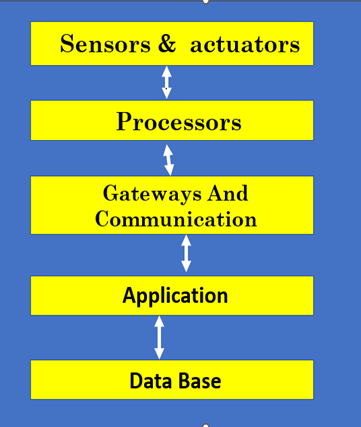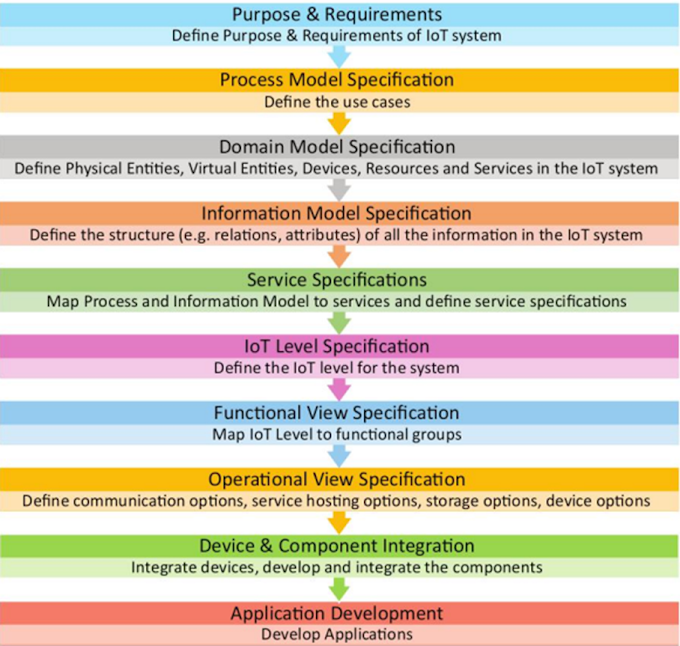Other IoT devices
pcDuino
Introductions of pcDuino
- ·
pcDuino is a high-performance, cost-effective
mini PC platform that runs PC-like OS such as Ubuntu Linux.
- ·
Outputs screen:- HDMI enabled TV or monitor
via the built-in HDMI interface.
- ·
Belongs with open source community.
- · PC-like OS with an easy-to-use tool chain and
compatible with the popular Arduino ecosystem such as Arduino Shields and open
source projects etc.
- ·
Also run Android 4.0 ICS.
- · Arduino same code used in pcDuino.
- · supports various programming languages including C, C++( with GNU toolchain), Java (with standard android SDK), And python.
The hardware specification of pcDuino:-
- ·
Learn or teach programming
- ·
Work with hardware part
- ·
Use Internet browser or Office from Ubuntu 4
- ·
Learn Ubuntu Linux
- ·
Create a media center with XBMC
- ·
Play game
- ·
DIY projects
pcDuino board I/O interface description:-
The list of I/O interfaces on the pcDuino board.
1. 14 digital pins for GPIO: GPIO max out current is 4mA.
2. One UART RX, one UART TX
3. Two PWM pins, support up to 24MHz.
4. Six ADC pins, ADC 0 and ADC 1 are 6 bits resolution,
while the rest are 10 bits resolution.
5. Four SPI pins
6. Two I2C pins
================================================================
BeagleBone black
·
BeagleBone is an "open source hardware". which
size is a credit card like.
It is famous for its small size, and high capability.
Microcontroller Specifications
The Beagle bone Black Microcontroller specifications are
as follows
·
The processor type
– Sitara AM3358BZCZ100 with 1 GHz and 2000 MIPS
·
Graphics Engine-
20M Polygons/S, SGX530 3D
·
Size of SDRAM
memory – 512 MB DDR3L, 800 MHz
·
Onboard Flash-
8-bit Embedded MMC with 4 GB
·
PMIC – 1
additional LDO, TPS65217C PMIC regulator
·
Debug Support –
Serial Header, onboard optional 20-pin CTI
·
Power Source –
mini USB, USB or DC jack; 5 Volts external DC through expansion header
·
PCB – 3.4″ X 2.1″;
6 layers
·
Type of indicators
– 1 power, 2 Ethernet, 4 LEDs, which are user-controllable
·
HS USB 2.0 Host
Port – Accessible to USB1, Type A Socket, 500 mA LS/FS/HS
·
Serial Port –
UART0 access via 6-pin 3.3 Volts TTL header. Populated header
·
Ethernet – 10/100,
RJ45
·
User Input – Power
button, Reset button, Boot button
·
SD/MMC Connector –
microSD, 3.3 Volts
·
Video out – 16b
HDMI, 1280×1024 (max), 1025×768, 1280×720, 1440×900, w/EDID support
·
HS USB 2.0 Client
Port – Access to USB0, client mode through miniUSB
·
Audio – Stereo, via
HDMI interface
·
Weight – 39.68 gms
(1.4 oz)
·
Expansion
Connectors – 5 Volts, 3.3 Volts power, VDD_ADC 1.8 Volts.
·
3.3 Volts on all
I/O signals – GPIO (69 max), McASP0, I2C, SPI1, LCD, GPMC, MMC1, MMC2, 4 serial
ports, 4 timers, 7 AIN (max 1.8 Volts), CAN0, XDMA interrupt, EHRPWM (0, 2),
Power button, expansion board ID (stacking of up to 4)
Applications
Robotics
o Autonomous Vehicle Xplorer
o Open ROV Underwater Robot
o Dancing SpiderBot
Media
o LED displays
o Plotters
o Mini arcade machines
Manufacturing
o 3D printing
o CNC and milling machines
Internet of Things
o Tweeting intrusion detection
Home automation
o Ninja Cloud
Wearables
o Wearable Dog Gear
Sensor platforms
o High-altitude camera
o Descriptive camera
o The Sense of Things
==================================
CubieBoard
·
cubieboard is
powered by a dual-core ARM Cortex A7 processor and has a range of input/output
interfaces including USB, HDMI, IR, serial, ethernet, SATA, and a 96-pin
extended interface.
·
It also provides
SATA support.
·
The board can run
both Linux and Android operating systems.
Architecture of CubieBoard6 /
CubieBoard7
Monolithic cousins to the
sandwich-style CubieAIO boards with faster SATA and USB 3.0
- Company/project — CubieBoard.org, CubieTech
Limited
- Processor — CubieBoard6: CubieTech Actions
S500 (4x Cortex-A9 @ 1.2GHz, PowerVR SGX544 GPU); CubieBoard7: CubieTech
Actions S700 (4x Cortex-A53, Mali-450 MP4 GPU)
- Memory — 2GB LPDDR3 RAM; 8GB eMMC
- The key advantage in addition to their lower
prices is that their non-native SATA ports piggyback on a faster USB 3.0
connection to offer an approximation of SATA III.
- The boards provide 10/100 Ethernet, 802.11n,
and BT 4.0, as well as 2x USB 2.0 host ports and a mini-USB port.
- Other features
o
HD-ready HDMI,
o
audio jacks,
o
RTC, IR,
o
a UART header,
o
dual 48-pin GPIO
headers.
o
supported with
Actions-optimized Android 5.1.1 and Debian builds.
============================================






0 Comments